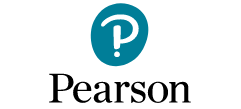In the last decade or so the number of predatory publishers and conferences has grown tremendously with a purpose to catch the attention of the young researchers relatively novice to their field in order to exploit their desire to be published. Similarly, predatory conferences are being organized for money making purpose and according to a recent study; actually the number of predatory conferences has increase as compared to genuine conferences. These kind of publishers usually send unsolicited email inviting young researcher to get their articles published for fee. The purpose of the following guides is to;
-
- Educate young researchers to be able to understand the scholarly communication process and importance of choosing the right journals, publishers and conferences for possible publication, presentation of their research.
- Create Awareness among FCC Researchers about the risks attached to choosing predatory Journals, Conferences and Publishers.
Links for Choosing & Evaluating, Journals, Publishers and Conferences
1. Journals
- The Cabell’s database to see if the journal you are interested in publishing in is on the ‘Black list’ or the ‘White list’
- The Think Check Submit checklist to assess if a journal is trusted or not?
- WIU Libraries Guides – Choosing & Evaluating Journals, Publishers & Conferences is the most comprehensive guide on all aspects of safe publishing
- Directory of Open Access Journals (DOAJ) is a community-curated online directory that index and provides access to high quality, open access, peer-reviewed journals. DOAJ is independent. All funding is via donations, 50% of which comes from sponsors and 50% from members and publishers. All DOAJ services are free of charge including being indexed in DOAJ. All data is freely available.
- Ulrichsweb.com: Ulrich’s Periodicals Directory – An authoritative knowledge-base of information about more than 300,000 serials of all types from around the world from academic and scholarly journals, peer-reviewed titles, open access journals, online publications, newspapers and other resources. Bibliographic records provide details including ISSN and title, publisher, online availability, language, subject area, abstracting & indexing coverage, searchable tables of contents, and full-text reviews.
2. Publishers/Conferences
- Open Access / Predatory Publishers / Questionable Conferences
- Predatory Publishing/Conferences
- Scholarly Communications: Predatory Publishers & Conferences
- Open Access Scholarly Publishers Association
3. Criteria for Identifying Predatory Journals & Conferences
-
- Black List: Beall’s list : (Taken down in January 2017 for being controversial) but archive lists are available:
-
- HEC Recognized Journals
- Predatory publishers list
- Predatory stand alone journals list
- Beall’s List of Predatory Journals and Publishers
- Hijacked Journals – Journals whose identity has been stolen with the creation of a new, impostor website.
- Misleading Metrics – A list of companies that supply questionable scholarly metrics.
- The Criteria for Determining Predatory Open Access Journalsto identify disreputable journals
- Predatory Publishing: Getting Started?
- Click here to download the Resource Guide for avoiding Predatory Journals and Questionable Conferences


